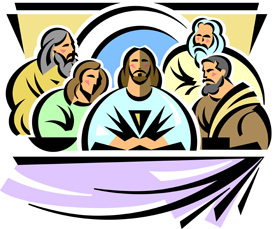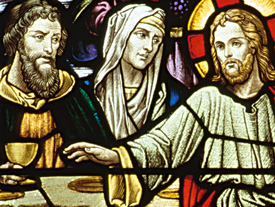Certain events invite us to both look back and look forward—graduations, weddings, New Year’s Day. At these times we consider the significance of the past and anticipate the future. The Lord’s Supper is such an event.
“For as often as you eat this bread and drink the cup, you proclaim the Lord’s death until he comes” (1 Corinthians 11:26, English Standard Version).
When we worship through participation in Communion we look back to the cross. We are reminded of our sin that made Christ’s death necessary. As we remember the cross, we must face our unworthiness to receive God’s forgiveness and salvation. As we search our hearts and take inventory of our lives, we confess our sins and moral failures to the Lord.
Partaking of the cup of blessing prompts us to express thanks to God for blessing us with his grace and mercy. We realize our Lord is present with us in this meal and we personally acknowledge to him our gratitude for taking our place on the cross.
Each time we partake of the Lord’s Supper we look forward as well. We declare our confident expectation of Christ’s return to earth. Even though the second coming is a future event, it influences our present behavior. Speaking of our hope in Christ, John says, “Everyone who thus hopes in him purifies himself as he is pure” (1 John 3:3, ESV).
As we share the Communion meal today, we remember the past and anticipate the future and experience renewal in the present. The cross is not some dusty fact of history, but has dynamic present and future impact. We remember our Lord who died but is not dead. He lives and will return to earth to claim his own. We have a living hope because we have a living Lord. Paul wrote to the Thessalonians about Jesus’ second coming and observed that this hope will encourage us and build us up (1 Thessalonians 4:18; 5:11).
Lynn Gardner is a retired Bible college professor and academic dean.



























